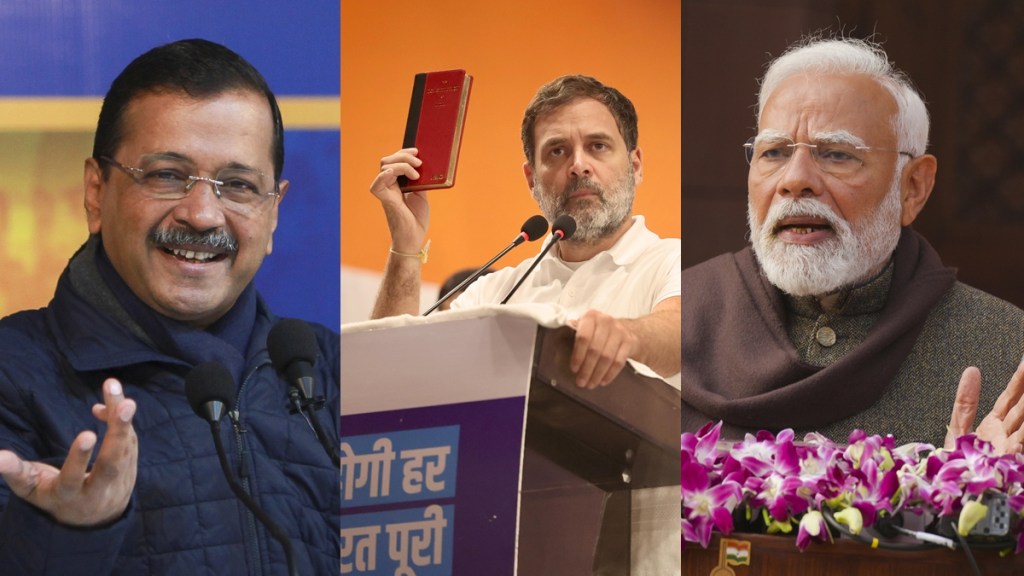Delhi Assembly Election voting today: Delhi voters head to the polls on Wednesday, February 5, for the high-stakes Delhi Assembly elections that will determine the future of the capital’s leadership. Over 1.56 crore eligible voters will cast their ballots from 7 a.m. to 6 p.m. across 13,766 polling stations in 70 constituencies, with 699 candidates vying for positions.
AAP and BJP in tight contest in Delhi
The Aam Aadmi Party (AAP), led by Chief Minister Arvind Kejriwal, is seeking a third consecutive term, highlighting its record of governance and welfare programs. The Bharatiya Janata Party (BJP), aiming to reclaim control of Delhi after over 25 years, is mounting a fierce challenge. Meanwhile, the Congress Party, which held power in Delhi for 15 years until 2013, is hoping to make a comeback after failing to secure any seats in the last two elections.
Security arrangements for Delhi polls
To ensure a smooth voting process, the Election Commission has deployed extensive security, including 220 companies of paramilitary forces, 35,626 Delhi Police officers, and 19,000 home guards. Special security measures have been set up at around 3,000 sensitive polling stations, including drone surveillance at select locations. Additionally, Quick Reaction Teams (QRTs) will be stationed at these sensitive areas.
The election commission is also prioritising accessibility, with 733 polling stations designated for senior citizens and persons with disabilities. A new Queue Management System (QMS) app has been introduced to help voters monitor crowd levels in real time, and nearly 7,000 home voting ballots have already been cast.
Campaigning ends for Delhi elections
The campaigning officially concluded on Monday, with all three major parties engaging in a fierce battle. The AAP emphasized its governance record, with Kejriwal and Chief Minister Atishi leading rallies across the city. The BJP, backed by heavyweights like Prime Minister Narendra Modi, Home Minister Amit Shah, and party President JP Nadda, criticized the AAP over corruption and law-and-order issues. The Congress, with leaders Rahul Gandhi and Priyanka Gandhi, targeted both AAP and BJP over various issues.
The discourse leading up to Election Day was marked by contentious debates over issues such as the “Sheesh Mahal” controversy, the quality of Yamuna water, and allegations of voter list tampering. While the key issues were governance, law and order, and women’s welfare, the parties’ campaign promises were heavily focused on freebies.
AAP promised free bus rides for students, insurance for auto and taxi drivers, and financial aid for religious leaders. The BJP pledged Rs 21,000 in financial assistance for pregnant women and subsidized cooking gas cylinders at Rs 500, while Congress promised a monthly unemployment benefit of Rs 8,500.
The outcome of the election on February 8 will decide whether AAP holds onto its dominant position, the BJP ends its losing streak, or the Congress makes a surprise comeback.

